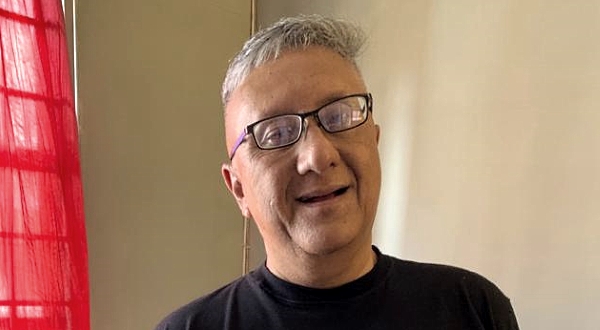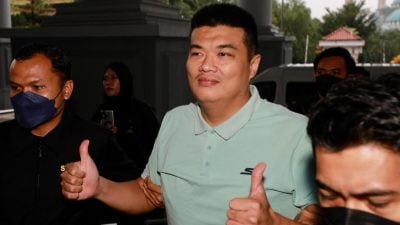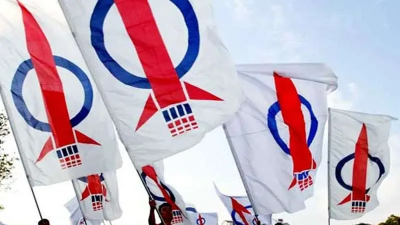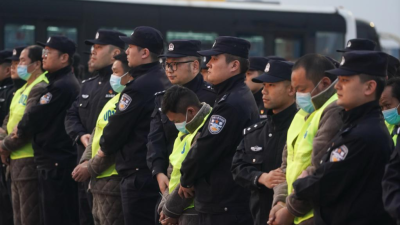
By Mohsin Abdullah
Datuk Seri Ahmad Zahid Hamidi's call for a "political ceasefire" – wanting Umno to back efforts by the Perikatan Nasional government in tackling the COVID-19 pandemic and prioritizing its economic impact on the people – seems logical. If the fight against the pandemic is indeed the reason, then it is totally right.
However, political analyst Dr Oh Ei Sun described the ceasefire as "cosmetic and opportunistic". News portal FMT quoted him saying the move is to avoid Umno being blamed for playing politics at a time when the nation is facing difficult times.
"It is taking advantage of the difficult pandemic situation to position itself loftily while not actually proclaiming full support for prime minister (Tan Sri) Muhyiddin Yassin," said Oh as quoted by the news portal.
Oh has got a point there, as I see it. The term "ceasefire" is usually used in times of war. Umno and Muhyiddin's Bersatu is at war, political war that is. So I suppose "ceasefire" albeit political is the right word to use.
But the definition of ceasefire or truce, according to Wikipedia, is "a temporary stoppage of a war in which each side agrees with the other to suspend aggressive actions.
"A ceasefire is usually more limited than a broader armistice which is a formal agreement to end fighting."
The key word is "temporary". Hence, if I may ask, why not a formal end to fighting? And I need to ask also how long the ceasefire will last.
Not long, according to Oh who said he believed Umno and Bersatu would cross swords again when the COVID-19 cases subsided "because Umno wants to be leader in the ruling coalition with Muhyiddin relegated to a figurehead at most".
Dr Jeniri Amir, another analyst, quoted by FMT also said they (the two parties) "will definitely clash again", taking into account what has happened between them and the current circumstances.
Back to Oh. Bringing PAS into picture, he said, "It is also conceivable that Umno and PAS are playing good cop bad cop in forcing Muhyiddin's hand and simultaneously diverting his attention with the ultimate goal of wearing him down so that he'll give in to their demands."
Please note that Zahid's political ceasefire gesture was made a week after Umno said it would reconsider its support for Perikatan Nasional if its new demands (well, as Umno puts it, "conditions") are not met. Umno did not put it as bluntly but their message was as clear as broad daylight.
And days after that Umno and PAS issued a joint statement to announce their intention to register Muafakat Nasional officially – without mentioning Bersatu giving the impression Muhyiddin's party has been left out in the cold despite claiming they have accepted Bersatu into the alliance months earlier.
So, taking Oh's remarks into context, the question to ask now is: has Muhyiddin given in to Umno's demands?
Bear in mind that bowing to such demands, according to political observers, would put the government, in particular Muhyiddin himself, at ransom, resulting in a situation where he will have to continue giving in to other demands in future. In short, giving in endlessly to endless demands.
Or is the political ceasefire gesture to give Muhyiddin more time to sort out the new conditions Umno wants? Hence a ceasefire and not a final end to "aggressive actions"?
Somehow, Umno supreme council member Tan Sri Annuar Musa took to Twitter to admit that "many were disappointed when the Umno president took a stand prioritizing unity and mobilizing our energy to help the government fight COVID-19.
"They wanted to see division. However, God willing, wisdom always prevails among Umno leadership."
Annuar, however, did not say who the "they" are, who wanted to see a split in Umno. Are they within Umno itself?
News portal Malaysia Now had earlier reported that Zahid's political ceasefire call came "on the back of strong protest from Umno leaders" who had gathered at party headquarters in Kuala Lumpur for a four-hour meeting to discuss a letter purportedly sent by Zahid to Yang di-Pertuan Agong expressing support for opposition leader Datuk Seri Anwar Ibrahim.
Annuar denied the report, saying "a meeting that long did not even take place". But he said Zahid's decision took into consideration the views of "many parties". Having said that Annuar went on to say the political ceasefire decision was Zahid's alone.
Does his decision “alone” mean it is an instruction from the president ? Not an entire party decision based on consensus ?
To Umno supreme council member Datuk Seri Nazri Aziz as far as Perak is concerned Umno members in the state will abide by Zahid's decision although the Umno –Bersatu dispute in Perak has not been resolved .
He was quoted saying Perak Umno would be meeting soon to discuss the issues and that he “did not care what Bersatu felt about this . "
Interestingly, Anwar Ibrahim's PKR reacted to the Umno president's decision.
Its secretary-general Datuk Seri Saifuddin Nasution said in a brief statement that PKR respects Umno's call for a political ceasefire in view of the economic situation and the COVID-19 pandemic, but will continue in its effort "to return the people's mandate" amidst Anwar's claim of commanding the majority in the Dewan Rakyat.
I will not go into the hows and other specifics, except to say it sounded to me like PKR telling Zahid "noted, thank you but we will move on". And that can be read as telling all and sundry Zahid had at one time or another did state his support for Anwar to take over Putrajaya.
I could be wrong, but then I could also be right.
(Mohsin Abdullah is a veteran journalist and now a freelancer who writes about this, that and everything else.)
ADVERTISEMENT
ADVERTISEMENT


































